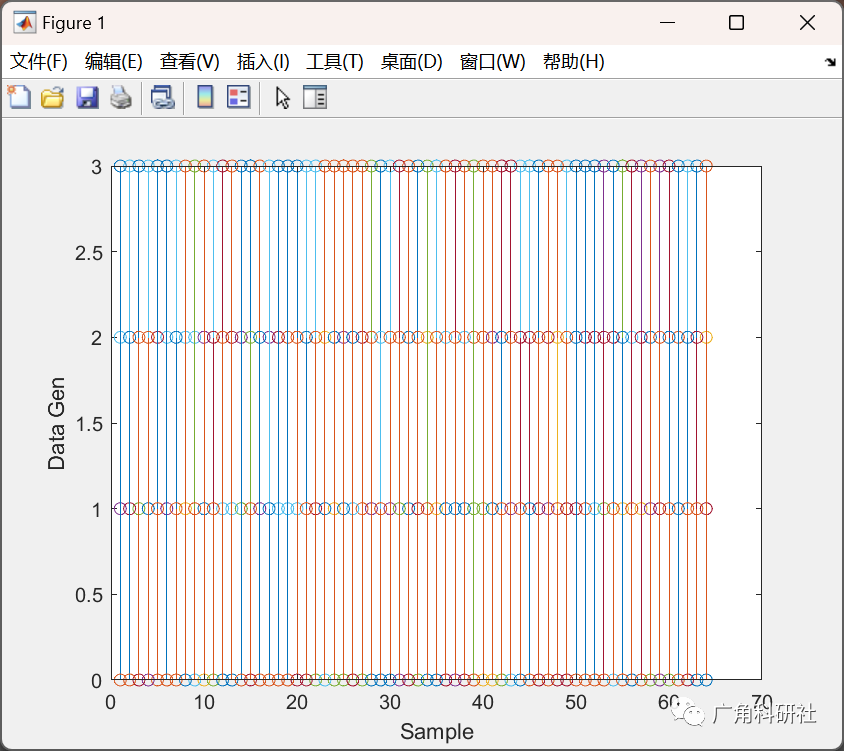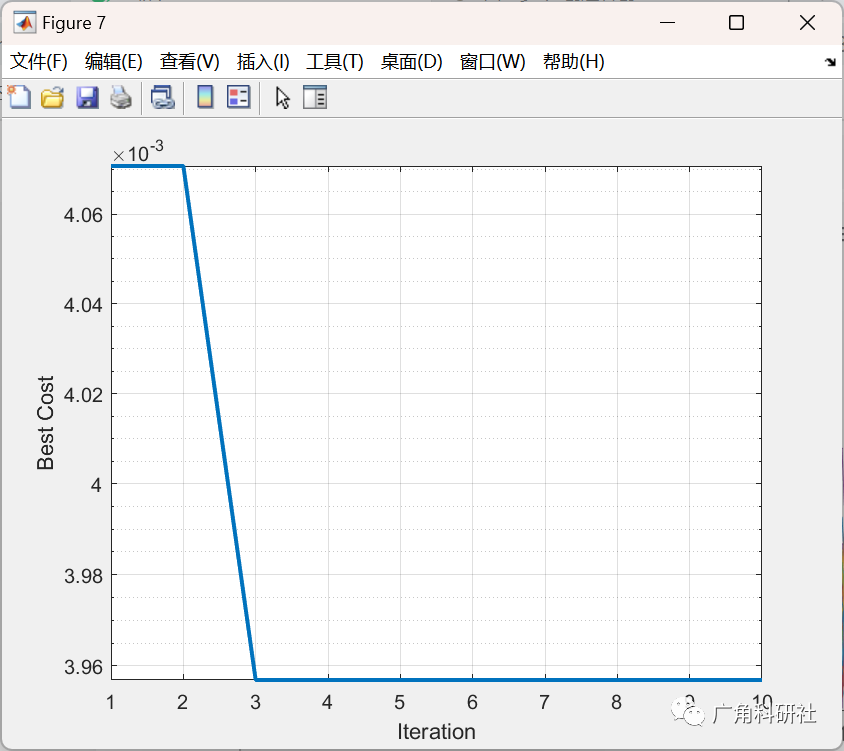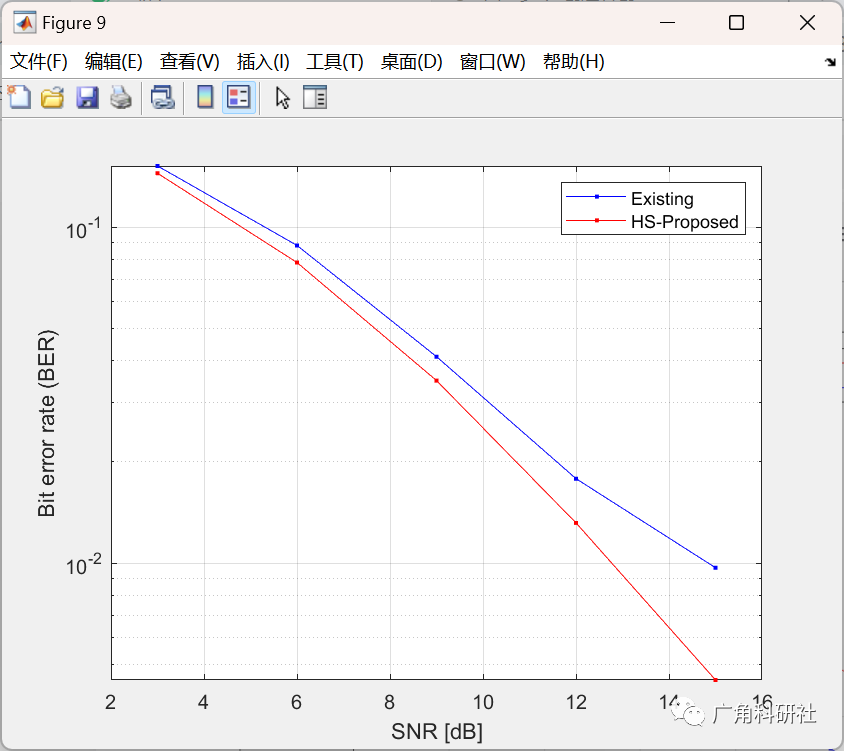MIMO-OFDM系统中信道估计的快速谐波搜索技术(Matlab代码实现)

目录
💥1 概述
📚2 运行结果
🎉3 参考文献
👨💻4 Matlab代码
💥1 概述
目前,由OFDM技术与空时编码技术相融合而成的MIMO-OFDM技术已经引起了通信领域的广泛关注和研究.在无线通信系统中,MIMO-OFDM技术不仅能够有效地增强数据传输速率,增加系统传输容量,而且能有效地抑制多径衰落和干扰.信道估计问题是MIMO-OFDM系统的一项关键技术问题,因此,本论文针对MIMO-OFDM系统的信道估计问题展开研究.
📚2 运行结果









主函数部分代码:
clc;
clear all;
close all;
global ofdm chan
global xb
%======================================================================% Inputs%======================================================================% Input parameters are (if not set the defalt value will be set)% ofdm.Nb = 1e2; % number of blocks% ofdm.Nt = 2; % number of transmit antennas % ofdm.Nr = 4; % number of receive antennas% ofdm.K = 128; % number of subcarriers % ofdm.G = 1/4; % Guard interval percentage % ofdm.Mod = 4; % QPSK Modulation% ofdm.PSpace = 1; % subcarrier space between two pilots% channel parameters% chan.SNR_dB = 15; % signal to noise ratio% chan.L = 6; % number of taps in each transmit-receive antenna% control parameters% ofdm.ifDemodulateData = 1; % (1,0) if 1, the code demodulates the transmitted via LS data and calculates the BER% ofdm.ifDisplayResults = 1; % (1,0) if 1, display the results in the command window%======================================================================% Outputs%======================================================================% The main outputs are listed below% chan.MSE_Theory % Minimum squared error of LSE channel estimation in theory% chan.MSE_Simulation % Minimum squared error of LSE channel estimation in simulations% ofdm.BER % Bit Error Rate if ofdm.ifDemodulateData = 1
SNR_dBV = 3:3:15; % vector of SNR values in dBSNR_dBVL = length(SNR_dBV); % length of SNR vectornMonteCarlo = 5;%e2; % number of Monte Carlo to find the value of each point in the figureofdmIn.Nt = 2; % number of transmit antennasofdmIn.Nr = 3; % number of recieve antennasofdmIn.ifDisplayResults = 0; % turn off the display% other parameters of ofdm can also be set. see help of MIMO_OFDM_LSE_CHAN_EST
%% OutputsMSE_CHAN_SIM = zeros(nMonteCarlo,SNR_dBVL); % MSE of LSE channel estimation in simulationMSE_CHAN_THR = zeros(nMonteCarlo,SNR_dBVL); % MSE of LSE channel estimation in theoryMSE_CHAN_BER = zeros(nMonteCarlo,SNR_dBVL); % BER of the MIMO OFDM with LSE channel estimation%% Parameters% system parameters (independent)ofdm.Nb = 1e2; % number of blocksofdm.Nt = 2; % number of transmit antenna ofdm.Nr = 4; % number of receive antennaofdm.K = 128; % number of subcarriers ofdm.G = 1/4; % Guard interval percentage ofdm.Mod = 4; % QPSK Modulation ofdm.PSpace = 1; % pilot space between two pilots% channel parameterschan.SNR_dB = 15; % signal to noise ratiochan.L = 6; % number of channel taps between each transmit-receive antenna% control parametersofdm.ifDemodulateData = 1; % (1,0) if 1, the code demodulates the transmitted data via LS algorithm, and calculates the BERofdm.ifDisplayResults = 1; % (1,0) if 1, displays the results in the command window% dependent parametersofdm.PPos = 1:(ofdm.PSpace+1):ofdm.K; % OFDM pilot positionssofdm.PL = length(ofdm.PPos); % Length of pilot subcarriersofdm.DPos = setxor(1:ofdm.K,ofdm.PPos); % OFDM data positionsofdm.DL = length(ofdm.DPos); % Length of data subcarriersofdm.BER = 0; % set the BER to zerochan.sigma = sqrt(10^(-0.1*chan.SNR_dB)); % noise power% normalization of the energy for the constelation temp = 0:ofdm.Mod-1; % possible symbolstemp = qammod(temp,ofdm.Mod); % modulated symbolstemp = abs(temp).^2; % power of each point in the constellationtemp = mean(temp); % average energy of the constellationofdm.ModNorm = 1/sqrt(temp); % normaliztion factor%% Data generation% symbol generationofdm.d = randi(ofdm.Mod,ofdm.DL,ofdm.Nb,ofdm.Nt)-1; % generation of a DL by nB by Nt matrix of data symbolsfigure,stem(ofdm.d(:,:,1))xlabel('Sample')ylabel('Data Gen')%% data Modulationofdm.dMod = zeros(ofdm.K,ofdm.Nb,ofdm.Nt); % memory allocation for the ofdm blocks transmitted from each Tx antennaif ofdm.DL > 0for nt = 1 : ofdm.Ntofdm.dMod(ofdm.DPos,:,nt) = ofdm.ModNorm*qammod(ofdm.d(:,:,nt),ofdm.Mod);endend
🎉3 参考文献
[1]曹松景. MIMO-OFDM系统中信道估计方法的研究[D]. 重庆大学.
点击文章左下角【阅读全文】
部分理论引用网络文献,若有侵权联系博主删除。


